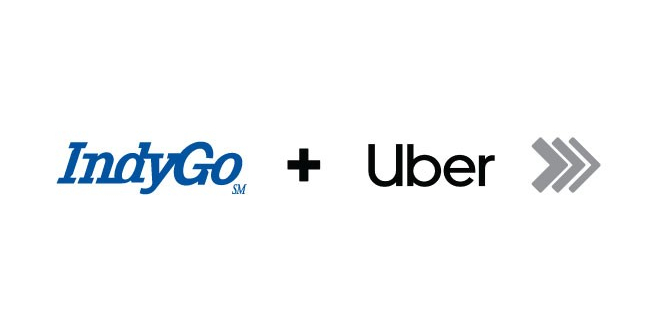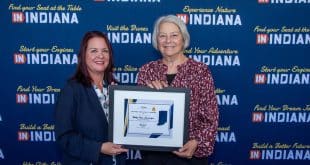INDIANAPOLIS (April 20, 2020) — While a challenging time to address transportation needs, IndyGo remains committed to continuing to provide transit service throughout the COVID-19 pandemic in a way that prioritizes both driver and passenger health.
In order to increase safety while riding, IndyGo has reduced fixed route service and limited passenger loads. These policy changes have accelerated the agency’s focus on piloting and learning about what future options exist for transportation and mobility for all of Marion County.
Through a partnership with Uber and for a limited time, IndyGo will offer one round trip Uber ride each work day for workers traveling to and from employment within Marion County. After receiving a trip request over the phone, IndyGo will book Uber trips on behalf of riders through a web-based reservation system called Uber Central.
A subscription fee of $60 must be paid by May 1 to continue using the service through May.
“IndyGo is committed to reducing transportation barriers for all, and especially our city’s essential workers who are still traveling every day,” IndyGo CEO, Inez Evans noted. “This partnership while providing an immediate mobility option will also supply the agency critical data to shape our ongoing work.”
Individuals experiencing transportation barriers should call the IndyGo customer service team at 317-635-3344 to pre-register starting Tuesday, April 21 during customer service hours, 7 a.m. to 7 p.m. Monday through Friday, and 9 a.m. to 3 p.m. on Saturdays.
Confirmation of trip origin and destination locations will be required before the individual is authorized to utilize this service.
April 21 – 22: Pre-Registration Period
April 23: Registered users may begin booking rides at 7 am; Registration continues
May 1: Paid subscription period begins
May 31: Anticipated last day of program
At this stage, individuals must have a debit, credit, or bank card to register.
All individuals in need of accessible vehicles should call IndyGo Open Door directly at 317-614-9260. Funding for this mobility service is made possible by CARES Act dollars for transit support during COVID-19.






